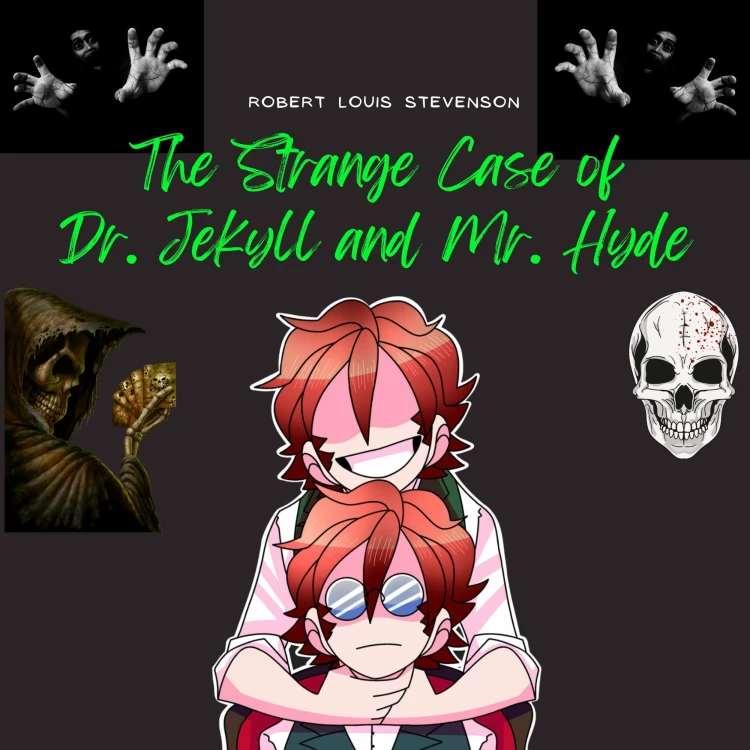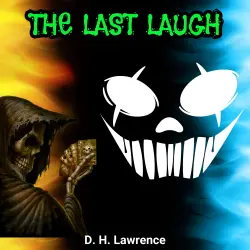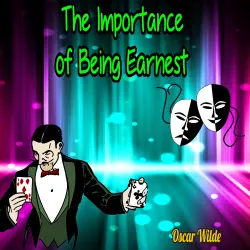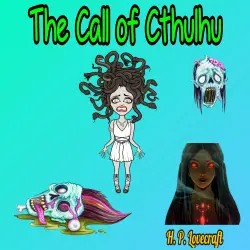
The Strange Case of Dr. Jekyll and Mr. Hyde
Robert Louis Stevenson
Unabridged
3 horas 7 minutos
Nota: La reproducción de los audiolibros o de las obras de audio en las respectivas plataformas, por ejemplo Spotify, puede generar gastos. Lismio no tiene ninguna influencia sobre qué audiolibros y obras de audio están disponibles en el servicio.
Algunos artículos contienen enlaces de afiliados (marcados con un asterisco *). Si hace clic en estos enlaces y compra productos, recibiremos una pequeña comisión sin coste adicional para usted. Su apoyo ayuda a mantener este sitio en funcionamiento y a seguir creando contenidos útiles. Gracias por su apoyo.
De la editorial
Strange Case of Dr Jekyll and Mr Hyde by Robert Louis Stevenson is a 1886 Gothic novella by Scottish author Robert Louis Stevenson. It follows Gabriel John Utterson, a London-based legal practitioner who investigates a series of strange occurrences between his old friend Dr. Henry Jekyll and a murderous criminal named Edward Hyde.
Strange Case of Dr Jekyll and Mr Hyde is one of the most famous pieces of English literature, and is considered to be a defining book of the gothic horror genre. The novella has also had a sizable impact on popular culture, with the phrase "Jekyll and Hyde" being used in vernacular to refer to people with an outwardly good but sometimes shockingly evil nature.
Plot:
Gabriel John Utterson and his cousin Richard Enfield reach the door of a large house on their weekly walk. Enfield tells Utterson that months ago, he saw a sinister-looking man named Edward Hyde trample a young girl after accidentally bumping into her. Enfield forced Hyde to pay her family £100 to avoid a scandal. Hyde brought Enfield to this door and gave him a cheque signed by a reputable gentleman later revealed to be Doctor Henry Jekyll, Utterson's friend and client. Utterson fears Hyde is blackmailing Jekyll, as Jekyll recently changed his will to make Hyde the sole beneficiary. When Utterson tries to discuss Hyde with Jekyll, Jekyll tells Utterson he can get rid of Hyde when he wants and asks him to drop the matter.
One year later in October, a servant sees Hyde beat Sir Danvers Carew, another one of Utterson's clients, to death and leave behind half a broken cane. The police contact Utterson, who leads officers to Hyde's apartment. Hyde has vanished, but they find the other half of the broken cane. Utterson recognizes the cane as one he had given to Jekyll. Utterson visits Jekyll, who shows Utterson a note, allegedly written to Jekyll by Hyde, apologizing for the trouble that he has caused. However, Hyde's handwriting is similar to Jekyll's own, leading Utterson to conclude that Jekyll forged the note to protect Hyde.
For two months, Jekyll reverts to his former sociable manner but, in early January, he starts refusing visitors.
Dr. Hastie Lanyon, a mutual friend of Jekyll and Utterson, dies of shock after receiving information relating to Jekyll. Before his death, Lanyon gives Utterson a letter to be opened after Jekyll's death or disappearance. In late February, during another walk with Enfield, Utterson starts a conversation with Jekyll at his laboratory window. Jekyll suddenly slams the window shut and disappears, shocking and concerning Utterson.
Strange Case of Dr Jekyll and Mr Hyde is one of the most famous pieces of English literature, and is considered to be a defining book of the gothic horror genre. The novella has also had a sizable impact on popular culture, with the phrase "Jekyll and Hyde" being used in vernacular to refer to people with an outwardly good but sometimes shockingly evil nature.
Plot:
Gabriel John Utterson and his cousin Richard Enfield reach the door of a large house on their weekly walk. Enfield tells Utterson that months ago, he saw a sinister-looking man named Edward Hyde trample a young girl after accidentally bumping into her. Enfield forced Hyde to pay her family £100 to avoid a scandal. Hyde brought Enfield to this door and gave him a cheque signed by a reputable gentleman later revealed to be Doctor Henry Jekyll, Utterson's friend and client. Utterson fears Hyde is blackmailing Jekyll, as Jekyll recently changed his will to make Hyde the sole beneficiary. When Utterson tries to discuss Hyde with Jekyll, Jekyll tells Utterson he can get rid of Hyde when he wants and asks him to drop the matter.
One year later in October, a servant sees Hyde beat Sir Danvers Carew, another one of Utterson's clients, to death and leave behind half a broken cane. The police contact Utterson, who leads officers to Hyde's apartment. Hyde has vanished, but they find the other half of the broken cane. Utterson recognizes the cane as one he had given to Jekyll. Utterson visits Jekyll, who shows Utterson a note, allegedly written to Jekyll by Hyde, apologizing for the trouble that he has caused. However, Hyde's handwriting is similar to Jekyll's own, leading Utterson to conclude that Jekyll forged the note to protect Hyde.
For two months, Jekyll reverts to his former sociable manner but, in early January, he starts refusing visitors.
Dr. Hastie Lanyon, a mutual friend of Jekyll and Utterson, dies of shock after receiving information relating to Jekyll. Before his death, Lanyon gives Utterson a letter to be opened after Jekyll's death or disappearance. In late February, during another walk with Enfield, Utterson starts a conversation with Jekyll at his laboratory window. Jekyll suddenly slams the window shut and disappears, shocking and concerning Utterson.








